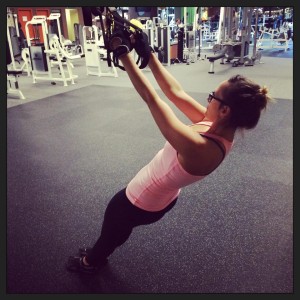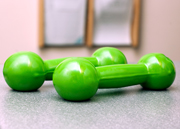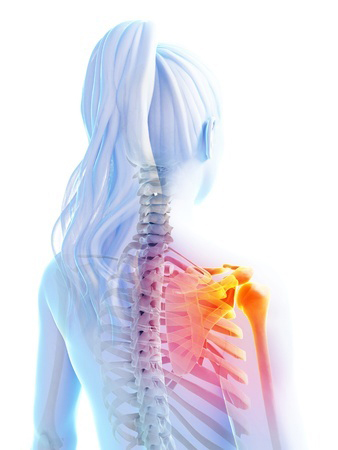Dr. Ron’s Favorite Raw Carrot Juice Recipe by Dr. Ron Cherubino
Five Ways to Make Returning to the Gym Easier
This week I found myself returning to the gym after three weeks without structured exercise. This is not to say that I was terribly sedentary, but I let go of my spreadsheets and moved for fun.
The first two weeks, my husband and I went for runs, had push-up competitions, and timed how long we could hold a pull-up. During the third week, I got the worst upper respiratory tract infection I’ve had in years and didn’t leave the house for six days.
As you can imagine, when I got up on Monday morning to go to Worcester Kettlebell Club, I did so with some trepidation. Everything seemed to go fine, although my strength was not what I was used to.
As humans, we lose strength pretty quickly. This has to do with our amazing adaptive abilities. When we repeatedly force our bodies to move a heavy load, for example, they rise to the occasion.
As soon as we take the load away, pushing heavy things is no longer seen as a top priority and our body puts its focus elsewhere—cleaning up physiological messes that seem more pressing. The good news is that we are primed for quick changes. If you are planning on returning to the gym here are 5 things you can do to make the transition less jarring:
Five Ways to Make Returning to the Gym Easier
One – Eat a small meal before training.
About an hour before each of my workouts, I eat a small meal, primarily of carbohydrates and protein. I used to train fasted—this was a huge mistake. The research about eating or not eating is mixed, but giving your muscles some fuel to draw from will make the heavy lifting not seem as exhausting and let you work out longer before you’re completely wiped out.
Two – Drink lots of water.
There are lots of ways to calculate how much water a person should drink daily. For most people, between three and four liters daily is adequate. (That’s about 100-130oz, for the metric-challenged.) Being well-hydrated prevents muscle cramping, and makes it less likely that you’ll pass out or throw up (neither of which is part of a great workout, regardless of what you may have heard).
Three – Start Light
When you left the gym you might have been squatting 200 lbs, but chances are your muscles will have lost a bit of that adaptation during your hiatus.
Start lighter and work your way up—you’ll be less likely to injure yourself and you can always go heavier on your next set.
Four – Use your intuition
Have you ever had the sense that this last rep just wasn’t in the cards but gone for it anyway? I sure have—seconds before I nearly crushed myself in the squat rack. In the fitness industry, you hear about “grinding” a lot—usually in the context of “grinding out that last rep.” It’s used to mean “pushing through even when you’re exhausted.” I don’t know what sadist came up with that, but the truth is our bodies have protective limits. Doing some exercise is much better than doing none. Congratulate yourself when you reach your personal limits—whenever they come up.
Five – Be ready to rest… but not too long!
When returning to the gym and your favorite exercise routines, after any type of hiatus, you’re likely to be sore. My legs barely work today. Keep in mind that the soreness following exercise is due to muscle tissue being broken down and reformed. When you’ve finished your workout, go home, drink some more water, eat food, and sleep. Be ready to move again soon. By the time the soreness is dying down (usually within 24-72 hours) hit the gym again. The soreness will never be as bad the second time performing the same movements and your muscles will adapt quickly.
Fun fact: people commonly attribute this soreness to lactic acid buildup, but research has shown that there is no correlation between lactic acid levels during exercise and muscle soreness afterward. The lactic acid actually contributes to the burning sensation we feel during exercise. Research suggests that cellular debris and other waste products are responsible for the soreness.
Whatever your goals are, starting (or re-starting) is often the biggest challenge. Give yourself a leg-up by going in prepared and feel free to ask me for help!
—Dr. Chris Cherubino
 Dr. Chris Cherubino is a chiropractic physician on staff at Cherubino Health Center, which is located just outside of Boston, Massachusetts. She is an advocate for self-directed treatment plans that include patient oriented goals, measurable means of evaluation, and evidence based treatment protocols. If you like this article on returning to the gym, be sure to subscribe to receive email updates of our latest blog posts. (Bottom or side of this page)
Dr. Chris Cherubino is a chiropractic physician on staff at Cherubino Health Center, which is located just outside of Boston, Massachusetts. She is an advocate for self-directed treatment plans that include patient oriented goals, measurable means of evaluation, and evidence based treatment protocols. If you like this article on returning to the gym, be sure to subscribe to receive email updates of our latest blog posts. (Bottom or side of this page)





